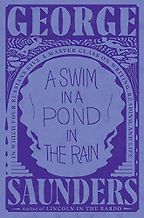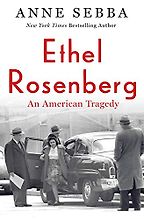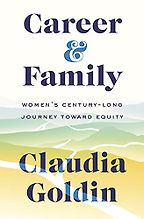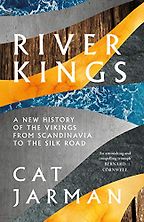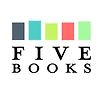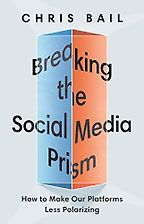It’s been a phenomenal year for nonfiction, with lots of books coming out that cover important topics and are written in a gripping way. On this, my personal list of the best of the year, I’m not going to include books chosen by others on our best of 2021 lists, though some of these are real eyeopeners. Empire of Pain by Patrick Radden Keefe, about the opioid crisis and the role of a company called Purdue Pharma in that, won the UK’s most prestigious nonfiction prize and is a fantastic read. I loved Leah Ypi’s Free, about growing up in Stalinist Albania—chosen by Nigel Warburton as one of the best philosophy books of 2021. It’s a funny book that also touches on a common feature of many former Communist states that’s difficult to understand unless you spend time there: nostalgia for the past.
I was excited to see a book called The Shortest History of China by Linda Jaivin—recommended by Jeffrey Wasserstrom in his best China books—covering the entire history of China in a couple of hundred pages. I’ve read a lot on China from the 20th century onwards, but the preceding three millennia have always been a bit of a blank for me. Stuck at home with little to do thanks to omicron, I used it as a springboard for my daughter and myself to learn the order of the Chinese dynasties by heart, something I’ve been meaning to do for a while. Also, while I haven’t read it yet, I’m looking forward to starting on The Horde by Marie Favereau, which was shortlisted for the Cundill History Prize and chosen by Paul Lay as one of his best history books of 2021. As he said when recommending it, “it changes the way you see the world”, which for me is the defining quality of what a really good book should do. Of course, that depends a lot on how you currently see the world, so what makes a good book for me is not necessarily what makes a good book for someone else. With that caveat in mind, some of my favourite nonfiction books of 2021:
A Swim in the Pond in the Rain: In Which Four Russians Give a Master Class on Writing, Reading and Life by George Saunders
A Swim in the Pond in the Rain is the most surprising book I’ve read this year. Most of the great Russian writers of the 19th century wrote short stories and, in this book, American author George Saunders teaches us what a handful of his favourites are about. It’s based on a class on Russian short stories he teaches to talented aspiring writers at Syracuse University. After class one day, he realized that “some of the best moments of my life, the moments during which I’ve really felt myself offering something of value to the world, have been spent teaching that Russian class.” He then tries to recreate that teaching experience in the pages that follow. It’s an extraordinarily successful effort. I don’t particularly enjoy short stories: I find them too short to be satisfying, but I was completely mesmerized by his explanations of what they meant to him, and what they can teach us about how to write effectively. After reading it, not only had I read some stories—by Leo Tolstoy, Anton Chekhov, Ivan Turgenev, and Nikolai Gogol—which I would never have embarked on otherwise, but I felt I’d spent a few days in 19th century Russia.
Breaking the Social Media Prism by Chris Bail
I’m fascinated by the toxicity of online debate, and how people can write detestable things to each other in a way they never would face-to-face. Living in the UK and with family in the US, I’m also slightly shocked by how polarized these two societies seem to have become. Each side seems to almost hate the other. Breaking the Social Media Prism by Chris Bail, a sociologist at Duke, takes on both these issues. Bail runs a ‘Polarization Lab’ at Duke (you can read more about it and even try out some of their interactive tools here). The book outlines not only what he’s learnt from his research, but what we can do to make things better. And ‘we’ is the operative word here, because while it’s easy to blame Facebook, the Russians, Cambridge Analytica etc. for everything that’s gone wrong, ultimately it is about us, and how each of us behaves. As he writes, “our focus upon Silicon Valley obscures a much more unsettling truth: the root source of political tribalism on social media lies deep inside ourselves.”
Ethel Rosenberg: A Cold War Tragedy by Anne Sebba
“It was a queer, sultry summer, the summer they electrocuted the Rosenbergs, and I didn’t know what I was doing in New York,” writes Sylvia Plath in the opening lines of her only novel, The Bell Jar. The execution of an American Jewish couple, Julian (‘Julie’) and Ethel Rosenberg in 1953 for espionage was one of those moments that rocked the world. In this book, historian Anne Sebba stops looking at them as a couple and tells Ethel’s story. She was born into poverty but was blessed with brains and a great voice and wanted to become a singer. She cared deeply about social justice and thought communism might be a solution. Through her activism, she met her husband. They had kids. She worried about being a bad mother and read piles of parenting books. Her husband was a spy for the Soviet Union, she probably wasn’t. She was executed by electric chair, leaving behind two boys, aged 10 and 6. As the subtitle says, it was a Cold War tragedy indeed.
Career & Family by Claudia Goldin
Claudia Goldin is an economist, in fact the first female economist ever to get tenure at Harvard. Career & Family is a book everyone should read because it analyses an issue that affects many of us: the wide disparities in pay that develop after people have children. The fact is, it’s very hard to both care for kids and be at the top of your profession. In the economy, the highest paying jobs go to workers who are prepared to work crazy hours and are available 24/7: they either don’t have children or have someone else who is prepared to look after them. This, Goldin has long argued, is the reason women with college degrees still earn so much less than men, especially in jobs like law and investment banking. It’s not so much about sexism or women being worse at bargaining for higher pay than men (say), it’s about a system. If that structure isn’t changed, no number of workshops training people to be less sexist, better at negotiating etc. is going to make a difference. This book is full of data looking at different cohorts of American women through the 20th century, though I love that there are also lots of examples of what prominent women did regarding marriage and children. Goldin remains outraged at the current situation but is also at pains to show that women have come a long way: a century ago, women who had a career did not, in general, get married and have children, now they can have both (even if they’re paid less for their efforts).
Get the weekly Five Books newsletter
River Kings by Cat Jarman
I’m always interested in books about the Vikings, this violent group who wreaked havoc around Europe in the medieval period, traded slaves, and had astonishing seafaring skills. Cat Jarman is a bioarchaeologist, and this book looks at what the latest findings in her field can tell us about them. Her own research focuses on a burial site in Repton, in Derbyshire and many miles from the sea, where nearly 300 bodies were found that were very likely from the Great Viking Army that invaded England. Lots of iron nails used for ships were also found at the site, indicating they got there by river. As the title of the book suggests, even if it’s crossing the Atlantic in a ship that seems more impressive, Vikings were a group who were able to flourish because of their ability to sail down rivers. In particular, they sailed along rivers in Russia, down to Byzantium and traded with the Middle East. I love the texture of the book, the information gleaned from Viking skeletons and objects found at burial sites: lots of playing pieces (Vikings liked playing games, apparently useful for strategy), a ring with Arabic script, beads from India, a coin from Afghanistan—and then the DNA evidence as techniques get more sophisticated. One Viking warrior turned out to be a woman, another one was bald, there was quite a bit of immigration to Scandinavia, even from the Middle East. Also, I found out a fact I never learned in school: Harald Hardrada—who famously invaded England just a few weeks before William of Normandy, another Viking, in 1066—spent time as a bodyguard to the Roman emperor in Constantinople.
December 24, 2021. Updated: October 9, 2023
Five Books aims to keep its book recommendations and interviews up to date. If you are the interviewee and would like to update your choice of books (or even just what you say about them) please email us at [email protected]
Five Books interviews are expensive to produce. If you've enjoyed this interview, please support us by donating a small amount.
